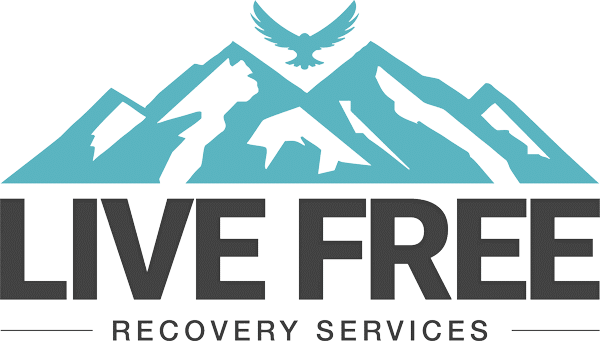
How Long is a Partial Hospitalization Program? What Should I Expect?
Home » Blog » How Long is a Partial Hospitalization Program? What Should I Expect?
In many cases, there’s no substitute for inpatient rehab. Severe cases of drug addiction are actually life-threatening without 24/7 oversight and medical intervention, particularly in the case of extreme alcoholism. However, what if you need serious help detoxing and starting your recovery, but don’t require this kind of service? In that case, partial hospitalization may be right for you. It is therefore essential to know how long does partial hospitalization last and what could be expected from it.
Table of Contents
What is a Partial Hospitalization Program?

The partial hospitalization program (PHP), from the name alone, sounds like it is much laid-back and has less to do than the inpatient treatment program, as it allows the patient outside of the treatment facility. In reality, it is made up of a variety of activities, such as evidence-based therapies, support group sessions, and complimentary exercises such as art therapy and even yoga. It is a comprehensive program using techniques and approaches all proven to be effective at helping a person towards recovery.
Some treatment approaches typically used in PHP include:
Individual Psychotherapy
The detox phase may have stopped the patient from taking any of the substance they were addicted to, but it is in no way a guarantee that they will not take it again. There are patients who have actually completed rehabilitation only to go back to old habits once more, and this is known as a relapse.
Intensive individual psychotherapy is used by many specialists to help the patients steer away from a possible relapse. The psychotherapy sessions help the patient with a two-pronged approach. The first approach involves breaking old and repetitive thought patterns that keep the patient in a substance abuse cycle, stopping, rehab, and then using again.
The other approach involves identifying specific underlying psychological issues that may be contributing to the cycle. These issues could include unresolved trauma, chronic abuse, or a single significant experience that profoundly affected the person.
Individual psychotherapy also encompasses certain practices that are already largely in use in many treatment facilities, including:
- Cognitive behavioral therapy – Cognitive behavioral therapy (CBT) is a form of psychotherapy that allows people to identify self-harming thoughts and notions. Once identified, these things become easier to deal with and change the way that they are perceived and reacted to.
- Dialectical behavior therapy – Originally used to treat borderline personality disorder, dialectical behavior therapy (DBT) is a specialized form of CBT with the goal of helping people develop healthier and better ways to cope with their issues and stress. It also helps people in regulating their emotions and how they react to it.
- Contingency Management Program – Growing up, most people acquire a certain mentality that good behavior is rewarded while bad behavior is punished. This creates the thinking that incentives will, therefore, elicit better behavior. Others, however, mistake the use of substances as a reward. Contingency management rides on this thought and instead aligns a person’s thoughts and perceptions regarding rewards with sobriety and recovery.
- Exposure Therapy – There are therapists who treat substance use disorders by looking into the possible causes, particularly if it is borne out of trauma or extreme or underlying fear. Exposure therapy builds up a person’s confidence and courage so that they learn to face their fears, and realize it for what it really is. This way, they are able to remove the possibility of an underlying fear or trauma, or at least get it to a manageable level.
- Motivational Enhancement Therapy – There are people who are completely sold on the idea of seeking help and treatment for their substance abuse issue, but regarding the actual seeking out and going to a treatment facility, their doubts set in and hinder their full commitment. Motivational enhancement therapy (MET) seeks to solidify their determination to push through with the treatment to its full conclusion, including steeling themselves for the involved difficulty in treatment.
How Long is Partial Hospitalization?
The length of a partial hospitalization program varies depending on the provider and the patient. In some cases, it may last as few as a few weeks or a month before the patient transitions into a less intensive program. However, partial hospitalization can last several months or more.
What to Expect
If you or a loved one are considering partial hospitalization, then you probably have many questions and don’t know what to expect. However, it’s rather predictable for anyone familiar with day treatment and rehab as a whole.
The sessions are all geared towards improving a person’s ability to stay on the path of recovery and sobriety and not be tempted towards a relapse. These sessions are geared to preoccupy their time with activities that will renew their interest in living a normal life free of substance abuse, help get in touch with themselves better so that they understand their issues better, and help them develop a better mentality towards problems, solutions, and opportunities.
The sessions are all geared towards improving a person’s ability to stay on the path of recovery and sobriety and not be tempted towards a relapse. These sessions are geared to preoccupy their time with activities that will renew their interest in living a normal life free of substance abuse, help get in touch with themselves better so that they understand their issues better, and help them develop a better mentality towards problems, solutions, and opportunities.
Regardless if a person is a loner by nature or not, psychology has proven that people respond better to treatment and therapy once the thought of going through their issues alone is removed. The support given during therapy sessions while in PHP will not only boost a person’s confidence and ability to deal with a normal life better, but also assure them that they are never alone in their plight and journey, and that gives them hope.
Regardless if a person is a loner by nature or not, psychology has proven that people respond better to treatment and therapy once the thought of going through their issues alone is removed. The support given during therapy sessions while in PHP will not only boost a person’s confidence and ability to deal with a normal life better, but also assure them that they are never alone in their plight and journey, and that gives them hope.
Rebuilding and recovering from substance abuse is, without a doubt, a lot of work. It truly is rebuilding because the time spent in substance abuse is time spent destroying the self. It will require time and effort to get everything back on track, but with the realization that it truly is within their reach, all the work done points to a visible and real goal and not just an imaginary one.
Rebuilding and recovering from substance abuse is, without a doubt, a lot of work. It truly is rebuilding because the time spent in substance abuse is time spent destroying the self. It will require time and effort to get everything back on track, but with the realization that it truly is within their reach, all the work done points to a visible and real goal and not just an imaginary one.
The people and the specialists at the PHP treatment facility will not mince words during the sessions. They will tell a person where they stand in their recovery, if they are near their goal, or if they are still far from it because they are dragging their feet and not putting in the work required for a full recovery.
The people and the specialists at the PHP treatment facility will not mince words during the sessions. They will tell a person where they stand in their recovery, if they are near their goal, or if they are still far from it because they are dragging their feet and not putting in the work required for a full recovery.
Most of the therapy used maximizes motivation and encouragement. There will be regular goal checks to not only see how far the patient has gone towards recovery and sobriety, but also for the patient to appreciate all the work they put in, which also serves to fuel their desire to work towards complete recovery.
Most of the therapy used maximizes motivation and encouragement. There will be regular goal checks to not only see how far the patient has gone towards recovery and sobriety, but also for the patient to appreciate all the work they put in, which also serves to fuel their desire to work towards complete recovery.
It is true that the sessions are designed to help change the way a person thinks about substance abuse and the trigger, and it is also true that they are guided into a lifestyle that will help them avoid a relapse. It is, however, still the patient’s choice at the end of the day, which is why they are allowed to leave the facility and go home once the sessions are done. The goal is to remove any kind of dependence from the patient, or they will just substitute their dependence on substances with something else.
It is true that the sessions are designed to help change the way a person thinks about substance abuse and the trigger, and it is also true that they are guided into a lifestyle that will help them avoid a relapse. It is, however, still the patient’s choice at the end of the day, which is why they are allowed to leave the facility and go home once the sessions are done. The goal is to remove any kind of dependence from the patient, or they will just substitute their dependence on substances with something else.
Live at Home During Intensive Treatment
When someone is involved in a partial hospitalization program, they’ll go home every day and have a fair amount of free time. However, the treatment is generally too long and intensive for patients to return to their jobs right away. Instead, they’ll be able to look into measures like this once they transition out of partial hospitalization. On most days of the week, the patient will visit their rehab facility for three to five-hour sessions. These are structured treatment sessions that incorporate therapy, group meetings, and general addiction recovery support as the patient needs.
Comprehensive Addiction Recovery Support
A patient undergoing partial hospitalization will receive various forms of support and treatment during their sessions at the facility. Everyone will receive some form of therapy, either individual, group, or a combination of the two. Care providers also incorporate addiction education, guidance, and counseling into these programs. The goal is to rapidly create a foundation for sober living, at which point the patient transfers out of partial hospitalization and begins moving toward a normal sober life.
Transition Into Outpatient Program
After completing a partial hospitalization program, the patient will continue to receive further care. Addiction recovery is a long-term process that never truly ends, and relapse remains a major risk for some time even after initially achieving sobriety. In light of this, you should expect that the end of partial hospitalization is the start of an outpatient program that requires less of their time and changes schedules to accommodate working.
Partial Hospitalization with Live Free SSL
Partial hospitalization, outpatient treatment, and sober living homes are the three pillars of the Live Free SSL addiction treatment program. No matter where you are in your journey toward recovery, you can find the support you need with us. Get in touch with us and share all of your addiction recovery questions to learn how we can help you.
